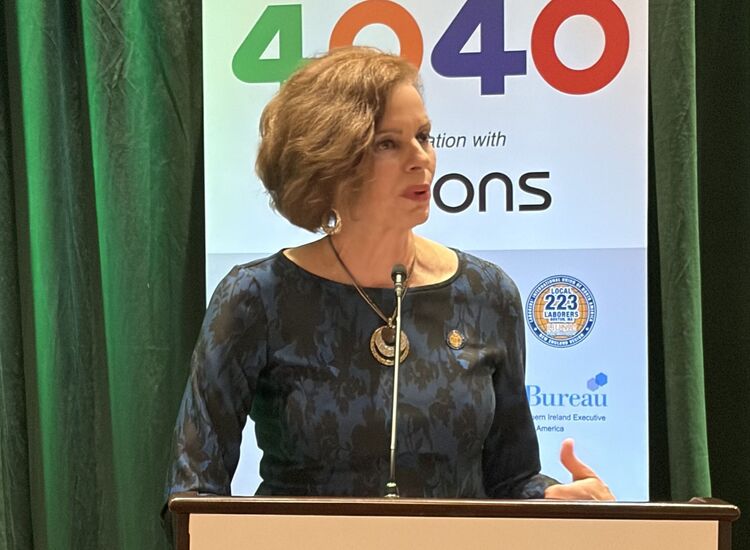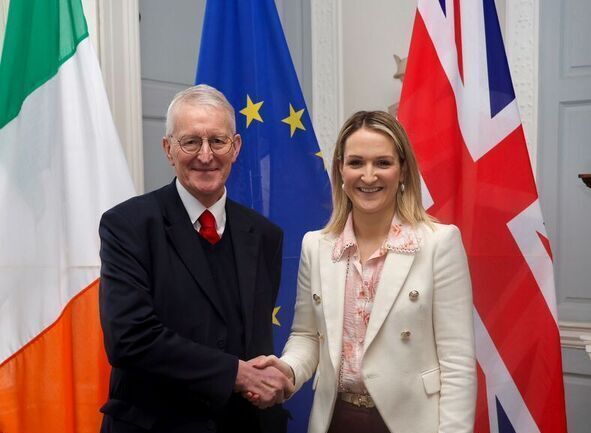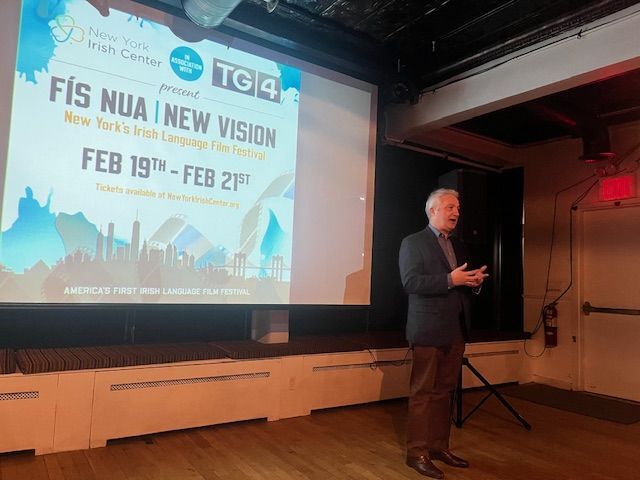Between the Lines / By Peter McDermott
In 1960, a future Republican president wrote to his party’s nominee, Vice-President Richard Nixon, offering support because he said the Democratic candidate was clearly under the sway of the philosophies of Karl Marx.
It may seem strange, then, that Congressman Paul Ryan in his recent debate chose to invoke that “Marxist” on his side of the argument, rather than the letter sender Ronald Reagan, in the context of tax cuts. That provoked the famous riposte from Vice President Joe Biden: “Oh, now you’re Jack Kennedy?”
So, what was all that about? Well it’s true that after the most sustained period of peacetime growth since the Civil War, the economy hit a sluggish patch, and the Kennedy Administration decided that the economy needed a stimulus. It didn’t have the votes in Congress for increased government spending, so it proposed a tax cut, which President Johnson implemented in 1964.
In an excellent piece on the New Republic’s website addressing Ryan’s comment, Timothy Noah offers a “significant difference” between the 1963 and 2012 proposals. “Romney and Ryan want to lower taxes by the same amount for all brackets, high and low. Kennedy (really, Johnson) lowered taxes more at the middle and especially at the bottom than he did at the top.”
The latter was what’s called a “demand-side” cut boosting consumer spending rather than “supply-side” cut aimed at encouraging investment.
“Ronald Reagan's tax cut in 1981 was pretty obviously a supply-side cut because it lowered the top tax rate more than it did rates at the middle or the bottom,” he says.
Noah, the author of a “The Great Divergence,” a much-praised book about the growing inequality in the U.S. since the 1970s, adds: “Today's grotesquely lopsided income distribution explains why any uniform reduction in tax rates (say, Romney's proposed 20 percent) is really a tax cut for the rich in disguise.”
For more context on the earlier tax reduction, one might consult an outtake on YouTube from the Sept. 9, 1963 episode of NBC’s “Huntley-Brinkley Report,” for which the president was interviewed by the hosts in the Oval Office.
Kennedy asks for a do-over on two questions about Vietnam. The anchors are only too happy to oblige, as one of them flubbed a question.
It’s like a scene out of “Mad Men,” guys in dark suits talking about the world – a time before women had even made it into binders.
They chitchat off the record about perception and reality in politics, about the economy, about the tax cut and how “damned difficult” it is, in JFK’s words, to sell deficits even though they are necessary sometimes to boost the economy. One of the anchors reveals Harry S. Truman (the last previous Democratic president) made a comment to reporters that day about the proposed tax reduction.
The president is curious about what Truman said, “He said he is opposed to a tax cut until you get the budget down,” David Brinkley says.
Kennedy smiles, shaking his head.
A couple of minutes on, he goes back to it. “I’m surprised at Truman. God. They get him on those morning walks.” And he laughs.
JFK is enthusiastic about the policy and the miracles the British government worked with it. So he suggests he tags on more about it on camera.
“Maybe we should say what Truman said: because a lot of people will not have heard it,” says Chet Huntley.
You can see for an instant that Kennedy is sorry he even mentioned it. He grits his teeth and flashes a look to an aide off camera that says: “How did we let this happen?”
JFK was a pol to his fingertips. A commentator or ideologue might love a nationwide audience to sound off to, but the elected official is far less interested in winning an intellectual argument. He or she wants to be sure the policy goes over well in places like Ashtabula, Ohio.
Some on the left believe that all President Obama has to do is explain, and that that is what leadership is about. Never mind that he has to deal with a 24-hour news media, sections of which are unremittingly hostile and obstructionist. For his part in this instance, JFK was worried about an ex-president from his own party who, he allowed, was trying to be helpful.
As for the 1964 tax cut, opinion is divided about whether it or not worked. Indeed, Noah says that “according to a recent Congressional Research Service survey, there's no clear evidence that tax cuts have ever stimulated economic growth, going all the way back to 1945.”
It’s worth recalling, too, that that long boom up to the 1960s was achieved with a top marginal tax rate of 91 percent. Somehow, though, the well off got by.









